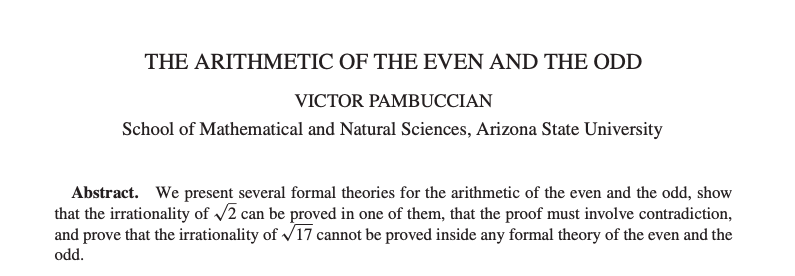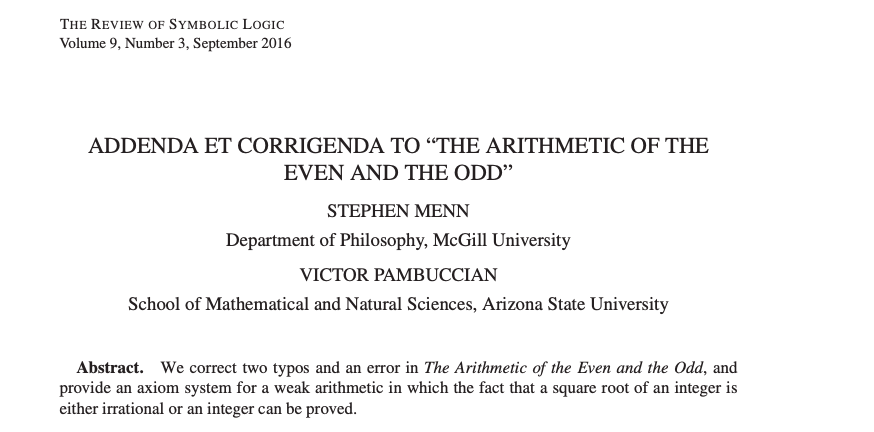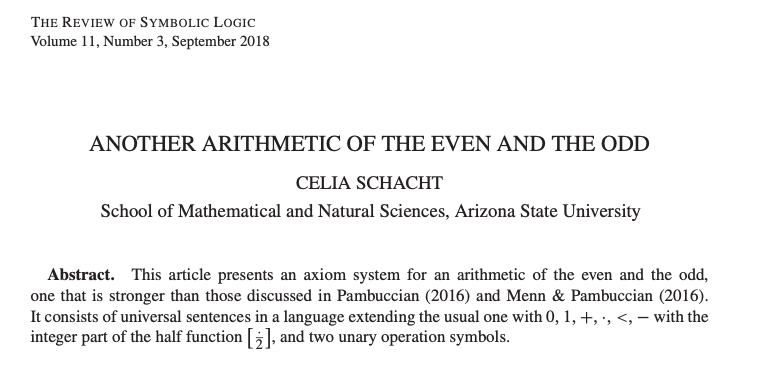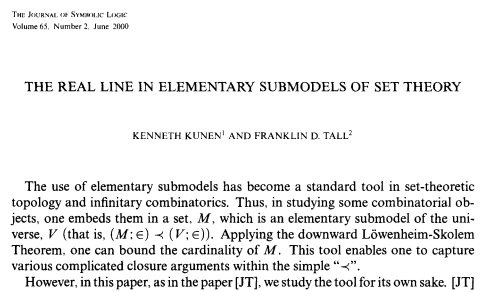A thread
I learned recently of a cute, apparently open, problem that I think is interesting and merits some mention.
1/
2/
3/
4/
5/
If p^2=5 q^2 then p cannot be even or else so would be q, and vice versa, so they are both odd,
6/
4k^2+4k+1 = 20s^2 + 20s +5,
or k^2+k = 5s^2+5s +1,
or 1 = k(k+1) - 5s(s+1),
so 1 is the difference of two even numbers, a contradiction.
As I said, crazy.
7/
I couldn't make it work for √17.
8/
Eventually, I found some references where other lunatics had attempted the same approach.
9/
The problem has been studied since: Can "the arithmetic of the even and the odd" proof the irrationality of numbers of the form (8k+1)2^n that are not already squares?
11/
The question has been studied by different authors. Part of the problem, of course, is to understand what precisely one is asking.
12/
MR0416824 (54 #4893)
McCabe, Robert L.
Theodorus' irrationality proofs.
Math. Mag. 49 (1976), no. 4, 201–203.
doi.org/10.1080/002557…
13/
Victor Pambuccian worked on this recently.
15/
21/21









